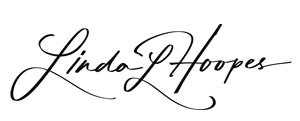Prosilience #15: Hold On Loosely
How to avoid being surprised that you're surprised

Our Brains Like Patterns
Humans are pattern-creating creatures. Our brains naturally look for regularities in the world around us, and we create mental images—internal representations—that allow us to predict how things will happen. We often use stories and images about the future to motivate us and to guide our day-to-day actions.
In fact, organizational scholars and motivational writers place great emphasis on having a sense of purpose—a “why” that gives us direction and meaning, and on goal-setting as a tool for motivation, and there is evidence to suggest that both of these have a generally positive impact.
The Paradox
There’s a paradox in here, though. The very processes we use to identify patterns and to map the world around us are the source of a number of predictable inaccuracies in our thinking1, including a tendency to pay more attention to information that fits our existing beliefs than to information that does not. The more we focus on the future, the more disrupted we become when we encounter barriers to achieving our goals or when things happen that take us off course.
If we’re not careful, we can get deeper and deeper into a dependency on our expectations and goals as a source of our own well-being. Our identity becomes defined in terms of what we accomplish, and our need to predict and control the future becomes more central to our satisfaction with life.
A World that Changes
In case you haven’t noticed, the world doesn’t play by these rules. The unexpected happens. Things break. Randomness intrudes. Others’ actions affect us. Surprises are around every corner, some of them exciting and others devastating.
So, how do we reconcile our preference for control and predictability with the reality of a world in which things are only partially controllable and predictable? I think one possible answer is to expect the unexpected…to make sure that our mental models of the world include the recognition that change, disruption, and upended expectations are actually a predictable part of life’s landscape.
This doesn’t make it any easier to cope with the unpredictable when it happens. We still spend energy dealing with confusion, anger, grief, and a million other emotions, working our way through addressing challenges and solving problems, and adjusting our course to take into account new realities. But we do gain one thing: we don’t waste energy being surprised that we are surprised (“how could this happen to me?” “it’s not fair!” “I can’t trust the world any more…”). We are able to recognize the inevitability of the unexpected and get on with dealing with its implications.
Hold On Loosely
Some of you may recognize this as a line from a song2:
Just hold on loosely, but don't let go
If you cling too tightly
You're gonna lose control
This is a good reminder to me that it’s important to hold on to our goals, priorities, images of the future, mental models, and intentions, while recognizing that it’s counterproductive to hold on to them too tightly.
In that spirit, I offer you a few nuggets of wisdom for finding that right balance and dealing with those moments that take you off your anticipated path:
Expect the unexpected—leave a little room in your planning for the adventitious; create slack by allowing more time, space, and resources than you expect to need; consciously acknowledge that unexpected things will happen and, when they do, say “oh, there you are! hello, unexpected—I knew you’d show up some time!”
Feel the feels—psychologists remind us that befriending, or at least accepting, all the emotions we experience, rather than fighting, denying, or suppressing them, is an important part of healing and growth. This is particularly important when you encounter major problems, losses, or setbacks.
Embrace the suck—this is a military term that describes leaning into discomfort, recognizing that it’s part of the process, focusing on the things you can control (including your own attitude), and using adversity to make you stronger.
Take the hit as a gift—from the martial art of Aikido, this is the idea that we can use unexpected blows as wake-up calls to change something in our life that is no longer serving us.
Practice saying “oh well”—I picked this one up from the Noom app as a simple tool for acknowledging that you don’t like what’s happening, but that you will pick yourself up and go on. This one is better for small disappointments than major ones, as it runs the risk of trivializing important feelings, but it’s a useful tool for the kit nevertheless.
What are your favorite tools for holding on loosely? I just learned a new one, from one of my sisters: “Semper Gumby”!!
I hope you’ve enjoyed this newsletter—see you in a couple of weeks for the next installment of Prosilience!
.38 Special: Hold On Loosely


